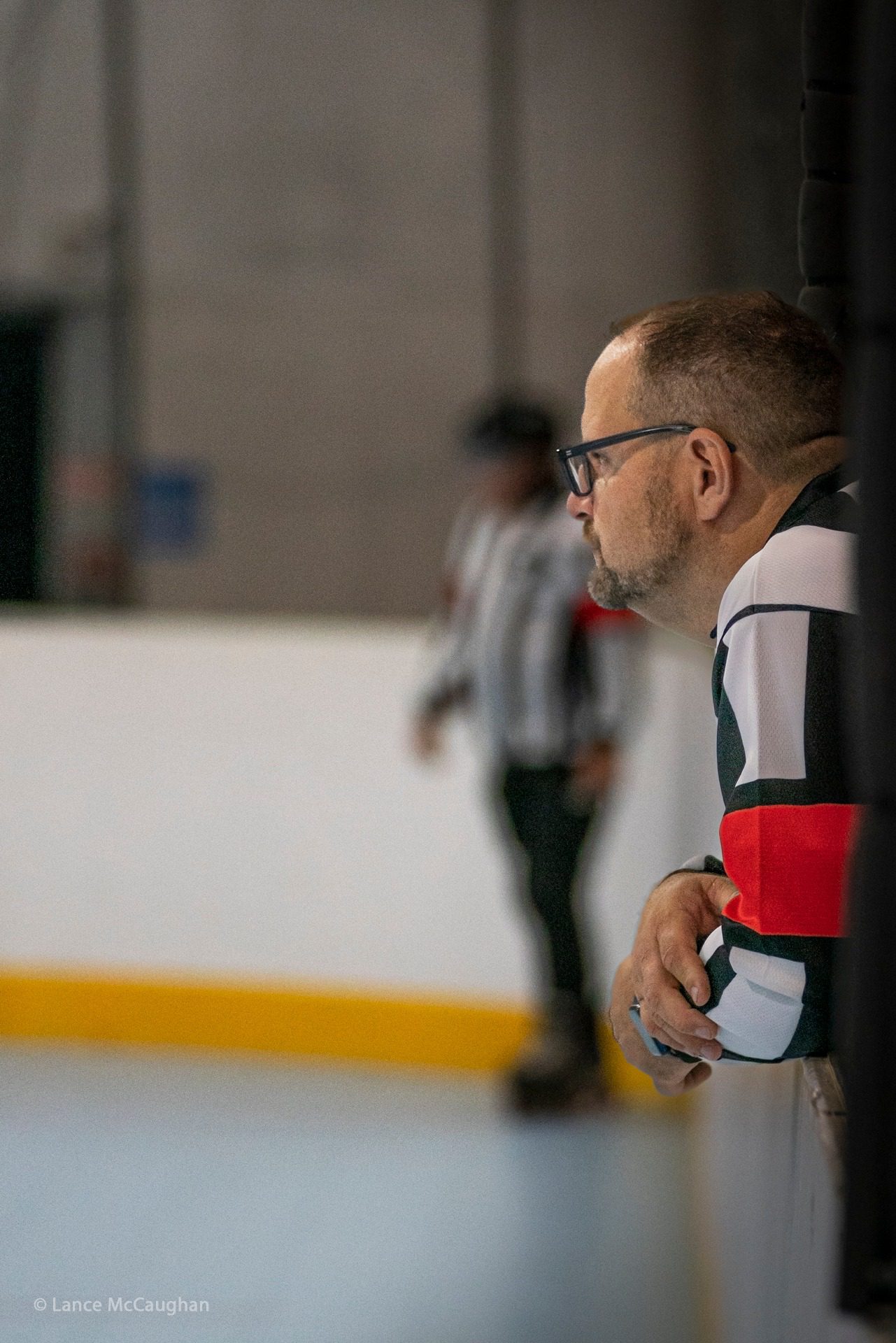I had a busy weekend. Thirty-four games – yes 34 – of 3-on-3 inline hockey at 20 minutes per game. That’s 680 minutes of refereeing fast paced games over one weekend and yet it is approximately 30 seconds of that 680 minutes that I, and some of the other people that were at the rink, are most likely to remember.
So, what happens when you make a mistake as a referee and how do you handle it?
I made two in one game – and important game at that – the Premier Division Bronze Game that went to overtime and then a shootout. I’m going to case study them both and hopefully shed light to others who might wonder about making mistakes and learn from them, just as I have.

The first mistake was a no goal call that was a goal. When you have refereed for a bit, you will have one, the bang-bang shot that comes off the inside top bar or back netting. Mine was the netting and my first instinct and the call I made was no goal. However, as I replayed the call in my head, I was positive I had it wrong. These are the steps I took on this play:
- Blew the play down so that the other team didn’t advance and get a goal. If you are in doubt, stop the play immediately. You don’t want to have to take a goal away from the other team to award one to the first team.
- Talked to my partner. You have a partner out there for a reason. You are part of a team. I checked in with my partner and while he admitted he didn’t have a great angle of the play, he agreed he was pretty sure it was a goal.
- Changed my call. I had it wrong, and most people knew it, including me. I made the goal call, explained what had happened to the other team’s captain and although he wasn’t happy, I also expect he knew it was a goal as well.
The other mistake I made, I didn’t handle as well. In overtime I saw a stick go flying and before letting the play finish, put my arm up for a penalty call. I thought I had seen a thrown stick when all I had was a stick that was dropped and then kicked. I then compounded my error by waving off my own penalty call, messing up the goalie who had started to leave his net.
Looking back, here is what I should have done on this play.
- Control my emotions and slow the play down. Like everyone in the building, I got caught up in the excitement of an overtime game, where the pace was quicker and the emotions higher. However, that excitement made me also react quicker. I should have taken the time to replay the play in my head before making the call. If I would have, I wouldn’t have put my arm up.
- Stop the play. Luckily in this situation, the goalie had barely left his net and saw me wave off the call, but had he gotten any distance from his goal and the play turned around, it could have been catastrophic if a goal was scored against him. Once you have your arm up either make a penalty call or if you really have it wrong, stop the play and
- Admit your error. I made a mistake; it’s going to happen. We aren’t perfect as referees, just as players and coaches aren’t perfect. I should have stopped the play, stopped the clock, admitted to both teams my error and then had a face off where I stopped the play. Sometimes you just need to admit your mistakes.
- Learn from it. Will I make that same mistake again? Maybe, but even if I do, I know now how to handle it better.
The sports field – any sport – is a competitive space where emotions run high. The natural feedback loop runs as fast as the game and errors are noticed immediately. It creates a player disruption, which is often met with swift, let’s say, adamant condemnation. This is a natural reaction, but if I can give a couple of final notes to younger referees, they would be:
- Don’t take abuse: Just because you made a mistake and admitted it, does not give the players, coaches or fans the right to abuse you over it. I was lucky that in both the above cases, no one really gave me a hard time about my mistakes. But if they had, I would have followed the referee abuse process. You being wrong and admitting it does not give anyone free reign to abuse you for it.
- Persevere: Mistakes are going to happen and odds are someone isn’t going to be happy about it. But I refereed 680 minutes of hockey that weekend and although it is likely I got some other calls wrong as well, I also know that I got more right than I did wrong. As a referee, you need to be your own cheerleader so be one. Yes, I got a couple wrong, but I also got a lot right.
Cameron Rock is a senior referee at Inline Hockey New Zealand sharing his experiences from the Waitangi 3-on-3 Inline Hockey Tournament held at the Hamilton Inline Hockey Arena on 4-7 February 2022.










